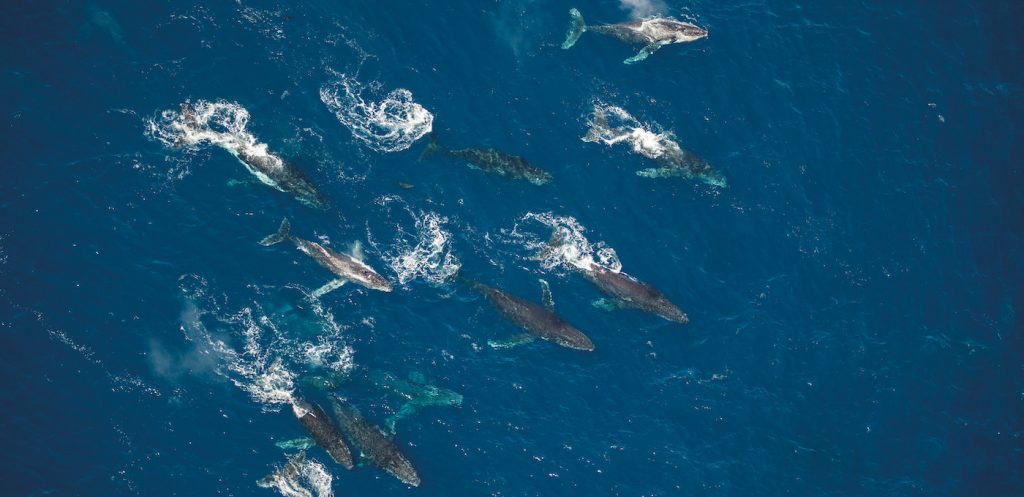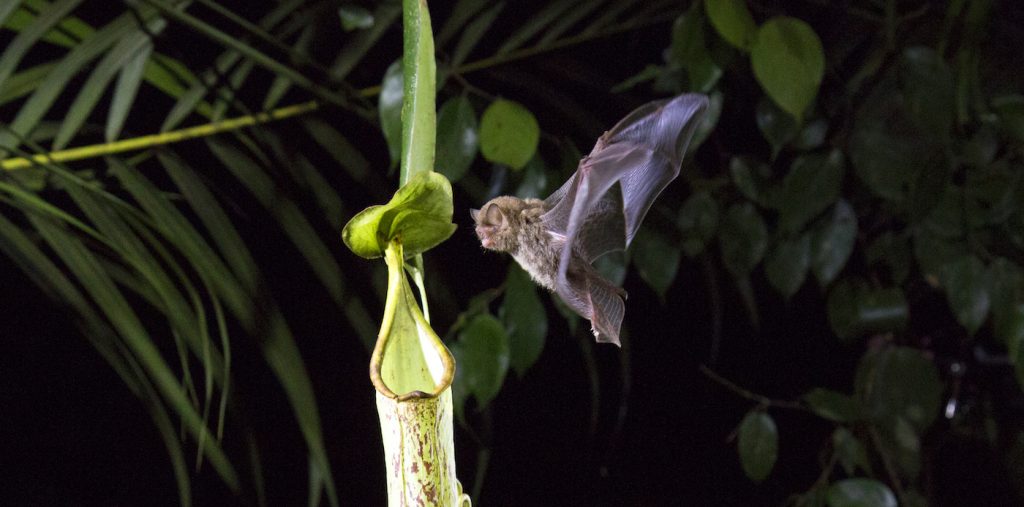Our Planet‘s Composer Scores Nature’s Astonishing Variety—and Fragility
Composer Steven Price is best known for his Oscar-winning music used in Alfonso Cuarón’s Gravity. Recently, Price turned his talents to creating the sweeping, majestic score for Netflix’s new original eight-part documentary series Our Planet. From the creators of Planet Earth, the show features spectacular footage of wildlife and their habitats and focuses on the importance of preserving them for our future. Price talked to The Credits about his emotional score and the great honor of working on a project featuring the voice of narrator Sir David Attenborough.
What was your approach to scoring Our Planet, and how did it come together? Were there parameters in terms of instrumentation?
I knew from the start we’d be using an orchestra. We talked very early on about the need for it to have the sort of grand scale, scope, and an emotional impact. All that translates to having an orchestra. Beyond that, they pretty much gave me free rein. I played them everything I wrote before we recorded it. The first film is an introduction to the various biomes. The other seven take place in very different habitats, and we wanted the music to reflect that. To feel like the music belonged in each environment it is in.

Can you give us an example?
For example, in the ‘Frozen Worlds’ episode, we used a lot of glacial sort of sounds, like icy strings, and there are way more synths going on. For the jungle episode, where there are more intimate behaviors, we used a different sort of instrumentation. Through all of that, we wanted it to feel like it was always Our Planet music, so there was always the intention that themes would reoccur throughout the series. Things that would evolve throughout the story showing how one habitat relates to another habitat. The overall hope was that it would be very entwined and very unified, but that each episode would have its own identity as well.
Much of the music for Our Planet is grand, but also very emotional. How did you structure the arc of the series, and keep it cohesive?
The very first thing you hear is the Our Planet theme at the start of the show, and that’s something that had to work in lots of different ways. It’s about the spectacle and the glory of the world, but also the fragility of it. I’d use that to anchor what I was doing during the series, and that would come back in all sorts of various styles. Then I’d have little character themes in specific sequences in the film, but there’s a theme throughout that can be picked up. A lot of the overall theme of Our Planet is this quality of hope. While we’re showing that the planet is in a lot of trouble, there are also ideas and solutions that people can help to make things a little better and create a better future.

I wouldn’t say it’s the norm that a documentary series positions a score as almost like another character in the show, but it helps connects us to all the episodes. Was that the intention, or did you just really want to create something that was an emotional tether for viewers?
The ideal for me is when everything is pushing in the same direction. We are fortunate in this project that we have Sir David Attenborough for narration, and I would almost treat his voice like the lead instrument. When I was working, I would work my melodies around the story he was telling. Meanwhile, I was trying to make the colors of the music reflect what’s on the screen. Hopefully, the whole thing bonds together as a sort of emotional journey that feels entwined and unique to the show.
Do you get to listen to any of Sir David Attenborough’s work as part of designing the score? He’s a genius with narration.
We would always have this back and forth. Sometimes I would be writing to his narration, but sometimes he would come in after I’d written the music. I always had a guide narrator, but Sir David would do things in his own unique way. What I find really fascinating, is whatever way we do it, somehow it comes together. If I write to his voice, I write to his rhythms. If he’s doing his narration at the end of the process, and I’ve already recorded my music, he’s incredible at responding to music. There have been times when I’ve written a piece of music, and maybe I’ve taken a slightly different approach to what might have been done, and he works with it.
For example, there’s a scene at the end of the first episode called ‘One Planet,’ where we see this huge glacier that’s starting to crack into the ocean. I worked on that scene for a long time, trying to make it really dramatic. I tried to hone in on the sadness of it, because this sort of thing shouldn’t be happening, and it’s happening more and more. We ended up taking all the sound away, all of these crashing, great big violent sounds the glaciers make, and replaced them with very intimate violin and piano, as a kind of lament for what was going on. Sir David took a listen to what we’d done there, and totally changed the way he delivered the sequence. It’s actually become one of my favorite things I’ve ever been part of. The way he delivered the message with the music, and he plays so beautifully around the musical phrases. He’s got a really musical ear himself. He made it into a sequence I couldn’t have dreamt of when we started.
Had you grown up with the documentaries narrated by him? It had to help that as a fan, you would already have an idea about his cadence and vocal style.
Absolutely! One of my earliest memories is sitting watching nature shows, with him speaking to me from the television. In my mind, it was always Sunday evenings. Even going back to Life on Earth in the late 70s! Then the original Planet Earth in 2006, he’s done such incredible work throughout the years. The very first time I heard his voice over my music was one of those experiences of sending shivers down my spine. I realized I had become a part of his work, which is a huge privilege.
Featured image: A huge colony of king penguins. This beach contains one of the largest penguin colonies in the world, and one of the densest aggregations of life on the planet. Courtesy Netflix.



